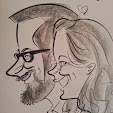This is our craft—-of course we break it down and study its parts, like an engineer would study an engine. Clint Johnson, at an LTUE past, once said that there are great writers and great storytellers, but seldom are you both; and just as you can improve your craft as a writer, you can learn to be a great storyteller. It's important and useful to study your craft.
But another comment at this year's LTUE really sat me up straight, because it cut through a lot of fluff and got to one of storytelling's greatest secrets. At the panel on suspense, James Dashner eventually said (paraphrasing from memory), “Look, I don't really know how I make my books suspenseful. I think, 'Would this make it more suspenseful?' And if it does, I do it. Don't worry about all these rules. You've read books and seen movies, and you know what makes a good story.”
We know what makes for a good story, intuitively. Storytelling is something we do all the time, every day, from when our boss asks “How was your night?” to when your wife asks “How was your day?” It's an ancient art that's as old as language itself. It's part of what it means to be human.
And yet we have all these workshops and blogs about the Hollywood Formula or the Hero's Journey. Did you know that people told stories to each other before Hollywood? And that not every story has every one of the 510 steps of the Hero's Journey?

There's a website out there called TV Tropes, which names and categorizes every story tool ever used in the history of stories. People say they can get lost in there for hours, simply reading about all the tropes. I've never really found it useful. It feels like they're inventing an entirely new language for story discourse, and through the translation we end up with microwavable meals.
I don't think that we should define good storytelling with hard and fast rules, like some kind of Moneyball approach. I think we need to trust ourselves as natural storytellers instead of looking for a formula or rule set for everything we write.
So if you find yourself stressing over all the rules, advice, and story structures, just sit back, take a breath, and write what you like.

4 comments:
That moment when you click on a picture and it doesn't get any bigger...
Anyway, I like this post. I'm kind of tempted to just link to it whenever I feel like writing a post on "this is how to do this" and use that in place of a post. :D
I agree with you that to some extent we all intuitively know how stories should be told. We've seen hundreds of movies, read hundreds of books, told hundreds of stories about ourselves to others. On some level we know how these things need to be constructed.
I only deconstruct my writing when I intuitively know that something is wrong and I can't see how to fix it. That is the only time "the rules" of writing helps me.
Great post!
The: Far be it from me to discourage you from linking to my blog every time you blog about writing advice.
MaryAnn: I've been thinking about this the past couple days, and I think I was too absolute in my argument. I still think it's valuable to study story with a toolbox of soft rules and suggestions, and always interesting to examine different story structures.
However, the opinion I think I'm beginning to approximate is that these tools don't help us create--they help us study creation.
Too often I expect that writing advice will excite me to write, when in actuality it can be creatively paralyzing. I think your suggestion of using it as a "what went wrong" response tool is on the right track.
This is an excellent point the more natural it sounds the better off it is. I think that we need to follow some rules, but those rules should not make the story only refine it. Great points!
Post a Comment